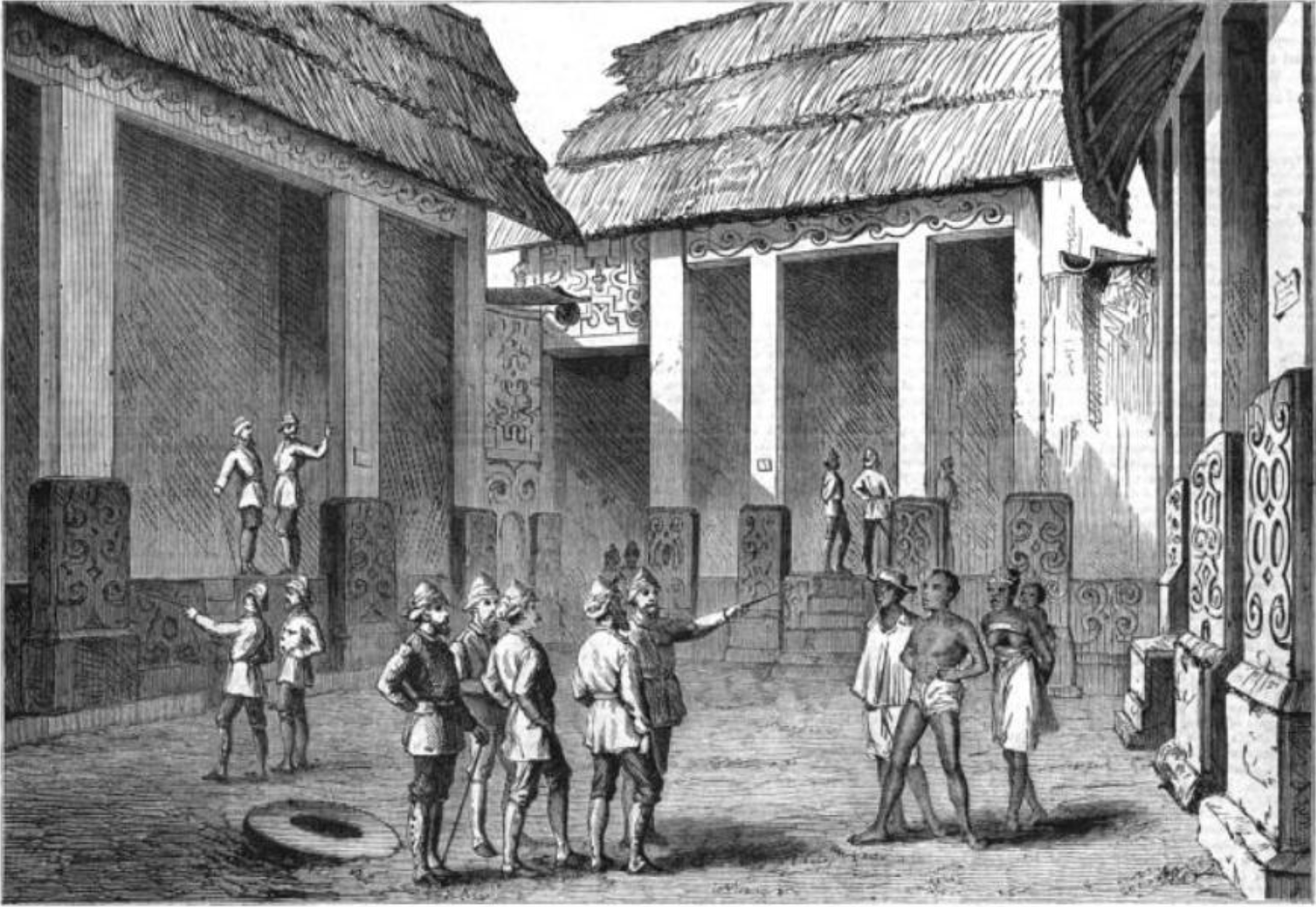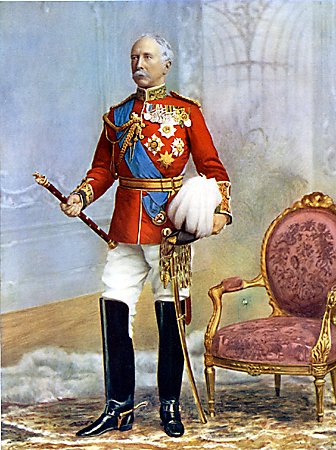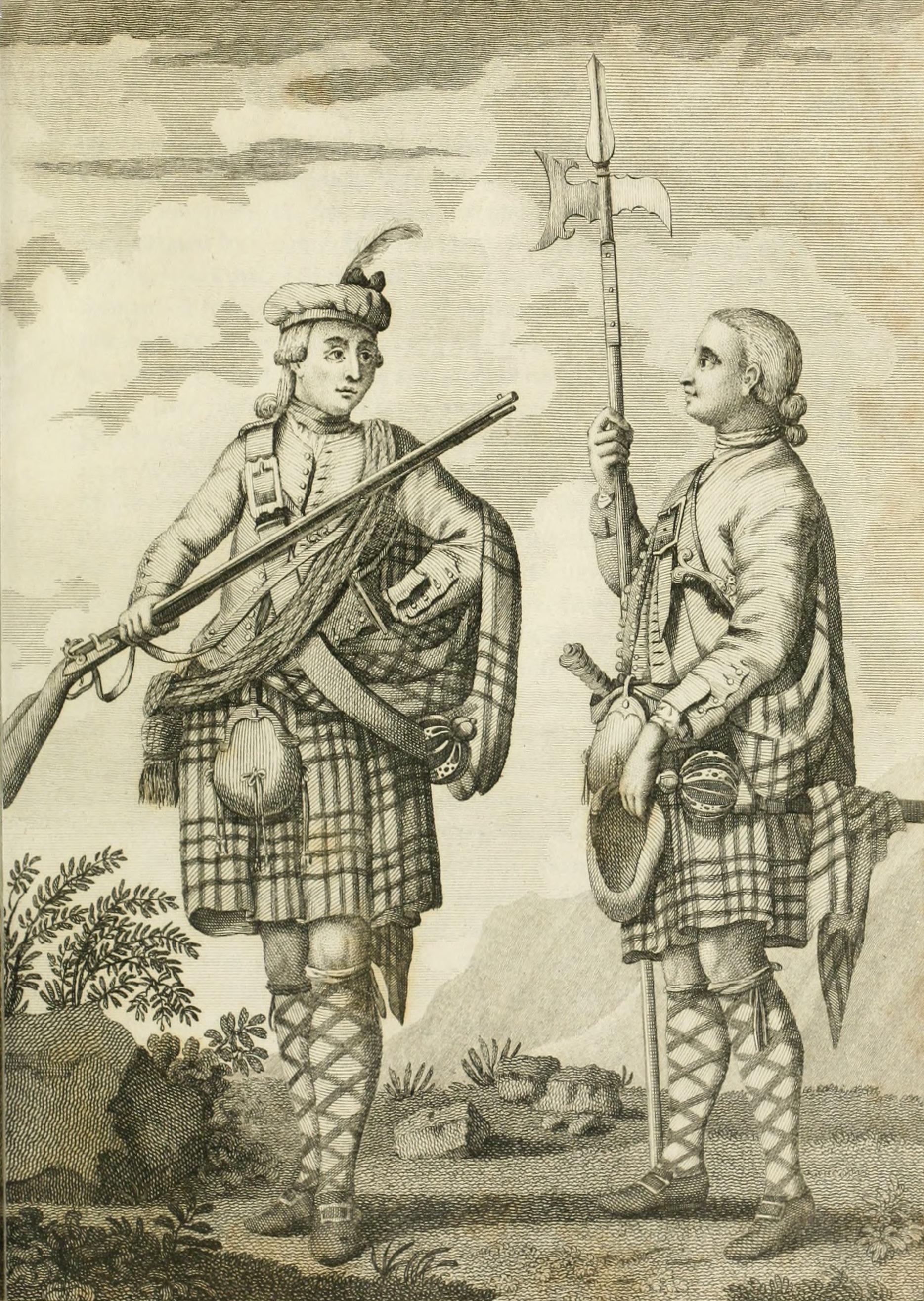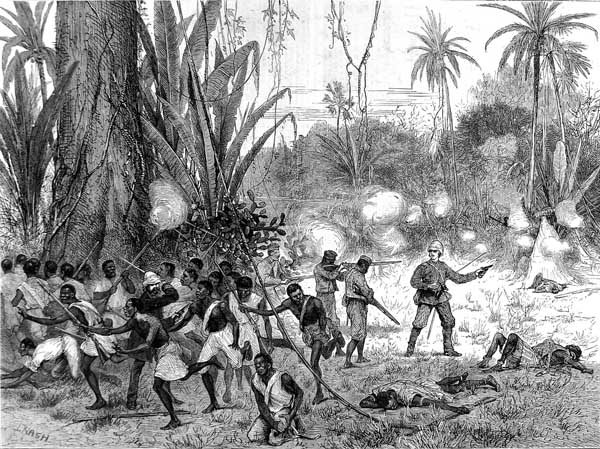|
Battle Of Amoaful
The Battle of Amoaful was fought on 31 January 1874 during the Third Anglo-Ashanti War when Sir Garnet Wolseley defeated the Ashantis after strong resistance.Ashanti Wars Heritage History The attack was led by the . At Amoaful, one combat post-mortem pays tribute to the Ashanti commander: "The great Chief Amanquatia was among the killed. Admirable skill was shown in the position selected by Amanquatia, and the determination and generalship he displayed in the defence fully bore out his great reputation as an able tactician and gallant soldier." Lance-Sergeant [...More Info...] [...Related Items...] OR: [Wikipedia] [Google] [Baidu] |
Anglo-Ashanti Wars
The Anglo-Ashanti wars were a series of five conflicts that took place between 1824 and 1900 between the Ashanti Empire—in the Akan people, Akan interior of the Gold Coast (British colony), Gold Coast—and the British Empire and its African allies. Despite initial Ashanti victories, the British ultimately prevailed in the conflicts, resulting in the complete annexation of the Ashanti Empire by 1900. Earlier wars The British fought three earlier wars in the Gold Coast: In the Ashanti–Fante War of 1806–07, the British refused to hand over two rebels pursued by the Ashanti, but eventually handed one over (the other escaped). In the Ga–Fante War of 1811, the Ashanti sought to aid their Ga people, Ga allies in a war against the Fante and their British allies. The Ashanti army won the initial battles but was forced back by guerrilla fighting from the Fante. The Ashanti captured a British fort at Tantamkweri. In the Ashanti–Akim–Akwapim War of 1814–16 the Ashanti def ... [...More Info...] [...Related Items...] OR: [Wikipedia] [Google] [Baidu] |
United Kingdom
The United Kingdom of Great Britain and Northern Ireland, commonly known as the United Kingdom (UK) or Britain, is a country in Northwestern Europe, off the coast of European mainland, the continental mainland. It comprises England, Scotland, Wales and Northern Ireland. The UK includes the island of Great Britain, the north-eastern part of the island of Ireland, and most of List of islands of the United Kingdom, the smaller islands within the British Isles, covering . Northern Ireland shares Republic of Ireland–United Kingdom border, a land border with the Republic of Ireland; otherwise, the UK is surrounded by the Atlantic Ocean, the North Sea, the English Channel, the Celtic Sea and the Irish Sea. It maintains sovereignty over the British Overseas Territories, which are located across various oceans and seas globally. The UK had an estimated population of over 68.2 million people in 2023. The capital and largest city of both England and the UK is London. The cities o ... [...More Info...] [...Related Items...] OR: [Wikipedia] [Google] [Baidu] |
Ashanti Empire
The Asante Empire ( Asante Twi: ), also known as the Ashanti Empire, was an Akan state that lasted from 1701 to 1901, in what is now modern-day Ghana. It expanded from the Ashanti Region to include most of Ghana and also parts of Ivory Coast and Togo. Due to the empire's military prowess, wealth, architecture, sophisticated hierarchy and culture, the Asante Empire has been extensively studied and has more historic records written by European, primarily British, authors than any other indigenous culture of sub-Saharan Africa. Starting in the late 17th century, the Asante king Osei Tutu ( – 1717) and his adviser Okomfo Anokye established the Asante Kingdom, with the Golden Stool of Asante as a sole unifying symbol. Osei Tutu oversaw a massive Asante territorial expansion, building up the army by introducing new organisation and turning a disciplined royal and paramilitary army into an effective fighting machine. In 1701, the Asante army conquered Denkyira, giving the ... [...More Info...] [...Related Items...] OR: [Wikipedia] [Google] [Baidu] |
Garnet Wolseley, 1st Viscount Wolseley
Field Marshal Garnet Joseph Wolseley, 1st Viscount Wolseley (4 June 183325 March 1913) was an Anglo-Irish officer in the British Army. He became one of the most influential British generals after a series of victories in Canada, West Africa and Egypt, followed by a central role in modernizing the British Army in promoting efficiency. Wolseley is considered to be one of the most prominent and decorated war heroes of the British Empire during the era of New Imperialism. He served in Burma, the Crimean War, the Indian Mutiny, China, Canada and widely throughout Africa—including his Ashanti campaign (1873–1874) and the Nile Expedition against Mahdist Sudan in 1884–85. Wolseley served as Commander-in-Chief of the Forces from 1895 to 1900. His reputation for efficiency led to the late 19th century English phrase "everything's all Sir Garnet", meaning, "All is in order." Early life and education Lord Wolseley was born into a prominent Anglo-Irish family in Dublin, the eldest s ... [...More Info...] [...Related Items...] OR: [Wikipedia] [Google] [Baidu] |
Ashanti People
The Asante, also known as Ashanti in English (), are part of the Akan people, Akan ethnic group and are native to the Ashanti Region of modern-day Ghana. Asantes are the last group to emerge out of the various Akan civilisations. Twi is spoken by over nine million Asante people as their native language. The Asante people developed the Ashanti Empire, along the Lake Volta and Gulf of Guinea. The empire was founded in 1670, and the capital Kumasi, Kumase was founded in 1680 by Asantehene Osei Kofi Tutu I on the advice of Okomfo Anokye, his premier. Sited at the crossroads of the Trans-Saharan trade, Kumase's strategic location contributed significantly to its growth. Over time a number of peculiar factors have combined to transform the Kumase metropolis into a financial centre and political capital. The main causal factors included the unquestioning loyalty to the List of rulers of Asante, Asante rulers and the Kumase metropolis' growing wealth, derived in part from the capital's lu ... [...More Info...] [...Related Items...] OR: [Wikipedia] [Google] [Baidu] |
42nd Regiment Of Foot
The 42nd (Royal Highland) Regiment of Foot was a Scottish infantry regiment in the British Army also known as the Black Watch. Originally titled Crawford's Highlanders or the Highland Regiment (mustered 1739) and numbered 43rd in the line, in 1748, on the disbanding of Oglethorpe's Regiment of Foot, they were renumbered 42nd, and in 1751 formally titled the 42nd (Highland) Regiment of Foot. The 42nd Regiment was one of the first three Highland Regiments to fight in North America, along with the 77th and 78th Regiments. The unit was honoured with the name ''Royal Highland Regiment'' in 1758. Its informal name ''Black Watch'' became official in 1861. In 1881, the regiment was amalgamated with 73rd (Perthshire) Regiment of Foot under the Childers Reforms into '' The Royal Highland Regiment (The Black Watch)'', being officially redesignated ''The Black Watch (Royal Highland Regiment)'' in 1931. In 2006, the Black Watch became part of the ''Royal Regiment of Scotland''. History ... [...More Info...] [...Related Items...] OR: [Wikipedia] [Google] [Baidu] |
Samuel McGaw
Samuel McGaw VC (1838 – 22 July 1878) was a Scottish recipient of the Victoria Cross, the highest and most prestigious award for gallantry that can be awarded to British and Commonwealth forces. Details McGaw was about 36 years old, and a lance-sergeant in the 42nd Regiment of Foot (later The Black Watch Royal Highlanders), British Army during the First Ashanti Expedition when the following deed took place for which he was awarded the VC. On 21 January 1874 at the Battle of Amoaful, Ashanti (now Ghana), Lance-Sergeant McGaw led his section through the bush in a most excellent manner and continued to do so throughout the day, although badly wounded early in the engagement. Further information He later achieved the rank of sergeant. He died of a fever whilst serving with his regiment in Cyprus. He is now buried in The Old British Cemetery in Kyrenia, North Cyprus. The medal Samuel McGaw's Victoria Cross is on public display in the Lord Ashcroft VC Gallery at the Imperial ... [...More Info...] [...Related Items...] OR: [Wikipedia] [Google] [Baidu] |
Victoria Cross
The Victoria Cross (VC) is the highest and most prestigious decoration of the Orders, decorations, and medals of the United Kingdom, British decorations system. It is awarded for valour "in the presence of the enemy" to members of the British Armed Forces and may be awarded posthumously. It was previously awarded to service personnel in the broader British Empire (later Commonwealth of Nations), with most successor independent nations now having established their own honours systems and no longer recommending British honours. It may be awarded to a person of any military rank in any service and to civilians under military command. No civilian has received the award since 1879. Since the first awards were presented by Queen Victoria in 1857, two thirds of all awards have been personally presented by the Monarchy of the United Kingdom, British monarch. The investitures are usually held at Buckingham Palace. The VC was introduced on 29 January 1856 by Queen Victoria to honour acts ... [...More Info...] [...Related Items...] OR: [Wikipedia] [Google] [Baidu] |
Third Anglo-Ashanti War
The Anglo-Ashanti wars were a series of five conflicts that took place between 1824 and 1900 between the Ashanti Empire—in the Akan interior of the Gold Coast—and the British Empire and its African allies. Despite initial Ashanti victories, the British ultimately prevailed in the conflicts, resulting in the complete annexation of the Ashanti Empire by 1900. Earlier wars The British fought three earlier wars in the Gold Coast: In the Ashanti–Fante War of 1806–07, the British refused to hand over two rebels pursued by the Ashanti, but eventually handed one over (the other escaped). In the Ga–Fante War of 1811, the Ashanti sought to aid their Ga allies in a war against the Fante and their British allies. The Ashanti army won the initial battles but was forced back by guerrilla fighting from the Fante. The Ashanti captured a British fort at Tantamkweri. In the Ashanti–Akim–Akwapim War of 1814–16 the Ashanti defeated the Akim-Akwapim alliance. Local British, D ... [...More Info...] [...Related Items...] OR: [Wikipedia] [Google] [Baidu] |
Conflicts In 1874
Conflict may refer to: Social sciences * Conflict (process), the general pattern of groups dealing with disparate ideas * Conflict continuum from cooperation (low intensity), to contest, to higher intensity (violence and war) * Conflict of interest, involvement in multiple interests which could possibly corrupt the motivation or decision-making * Cultural conflict, a type of conflict that occurs when different cultural values and beliefs clash * Ethnic conflict, a conflict between two or more contending ethnic groups * Group conflict, conflict between groups * Intragroup conflict, conflict within groups * Organizational conflict, discord caused by opposition of needs, values, and interests between people working together * Role conflict, incompatible demands placed upon a person such that compliance with both would be difficult * Social conflict, the struggle for agency or power in something * Work–family conflict, incompatible demands between the work and family roles of ... [...More Info...] [...Related Items...] OR: [Wikipedia] [Google] [Baidu] |
1874 In Africa
Events January * January 1 – New York City annexes The Bronx. * January 2 – Ignacio María González becomes head of state of the Dominican Republic for the first time. * January 3 – Third Carlist War: Battle of Caspe – Campaigning on the Ebro in Aragon for the Spanish Republican Government, Colonel Eulogio Despujol surprises a Carlist force under Manuel Marco de Bello at Caspe, northeast of Alcañiz. In a brilliant action the Carlists are routed, losing 200 prisoners and 80 horses, while Despujol is promoted to Brigadier and becomes Conde de Caspe. * January 20 – The Pangkor Treaty (also known as the Pangkor Engagement), by which the British extend their control over first the Sultanate of Perak, and later the other independent Malay States, is signed. * January 23 – Prince Alfred, Duke of Edinburgh, second son of Queen Victoria, marries Grand Duchess Maria Alexandrovna of Russia, only daughter of Tsar Alexander III of Russia, in the Gra ... [...More Info...] [...Related Items...] OR: [Wikipedia] [Google] [Baidu] |







